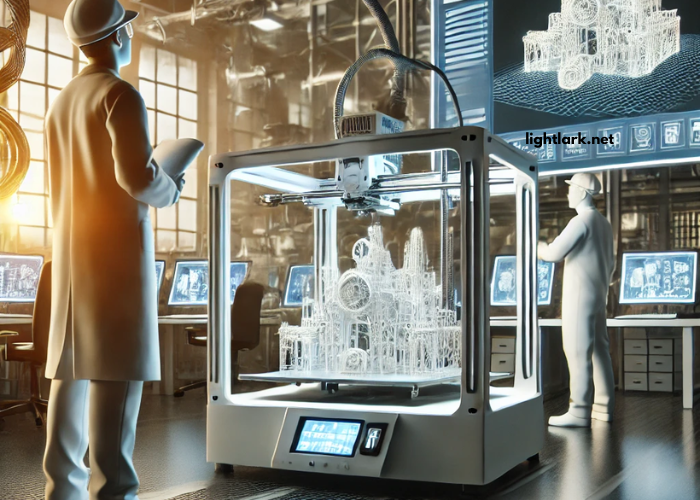The year 2025 promises to be an exciting milestone for both artificial intelligence (AI) and technology as a whole. With rapid advancements in machine learning, automation, and data analytics, the future is shaping up to be more interconnected, efficient, and intelligent. As AI becomes more embedded in our daily lives, industries across the globe will experience profound changes, from healthcare and finance to entertainment and education. In this article, we will explore what the future holds for AI and technology in 2025, touching on key trends, innovations, and their potential impact on society.
The State of Artificial Intelligence in 2025
Artificial intelligence is no longer a futuristic concept; it’s a present-day reality with applications already transforming various sectors. However, by 2025, AI will evolve in ways that are currently unimaginable, achieving breakthroughs that will redefine the way we work, live, and interact with the world.
AI in Healthcare: A Revolution in Personalized Medicine
One of the most promising areas for AI in 2025 is healthcare. Over the past few years, AI has already made significant strides in improving diagnostic accuracy, optimizing treatments, and enhancing patient care. In 2025, AI-powered technologies will likely be more integrated into the healthcare system, enabling personalized medicine at an unprecedented scale.
Machine learning algorithms will be able to analyze genetic data and medical records to predict individual health risks and recommend tailored treatment plans. AI-driven tools will enhance early disease detection, from cancer to rare genetic conditions, helping doctors make more accurate diagnoses. The integration of AI with wearable devices will also offer real-time health monitoring, allowing for proactive care and timely interventions.
AI in Autonomous Systems: The Rise of Self-Driving Cars and Drones
Another exciting development for AI in 2025 is the advancement of autonomous systems, particularly self-driving cars and drones. While autonomous vehicles have made significant progress in recent years, regulatory and technical hurdles remain. By 2025, however, we are likely to see a more widespread deployment of fully autonomous cars, especially in controlled environments such as smart cities or specific regions with suitable infrastructure.
Self-driving cars will revolutionize transportation, reducing human error, lowering accident rates, and improving traffic flow. Drones, too, will become more commonplace, not only in delivery services but also in industries such as agriculture, construction, and logistics. AI will power these systems, allowing them to navigate complex environments, make split-second decisions, and improve their functionality over time.
AI in Education: Personalized Learning for Every Student
In 2025, AI will redefine the educational experience by providing personalized learning opportunities for students of all ages. AI-powered educational platforms will analyze a student’s learning patterns, strengths, and weaknesses to create a customized curriculum that adapts to their individual needs. This will be especially beneficial for students who struggle in traditional educational settings, as AI can offer tailored instruction that is more effective.
Moreover, AI tutors and virtual assistants will be available 24/7, helping students with homework, answering questions, and guiding them through complex topics. By reducing the reliance on human instructors and allowing for more personalized teaching, AI will improve access to education and make learning more efficient and engaging.
The Role of Automation in the Future Workforce
As AI technology continues to advance, automation will play an increasingly important role in the future workforce. By 2025, automation is expected to disrupt many industries, transforming how businesses operate and how employees interact with machines.
The Rise of AI-Driven Automation in Manufacturing
In manufacturing, AI and robotics will become integral to production lines, allowing for greater efficiency and precision. Advanced AI systems will monitor and control manufacturing processes, reducing the risk of human error and improving product quality. Robots will be able to perform tasks ranging from assembly to packaging, freeing up human workers to focus on more strategic and creative tasks.
This shift toward automation will likely result in job displacement in some sectors, but it will also create new opportunities in fields such as robotics maintenance, AI programming, and data analysis. Additionally, automation in manufacturing will lead to the development of more sustainable production practices, reducing waste and energy consumption.
AI in the Service Industry: Enhancing Customer Experience
In the service industry, AI will play a critical role in enhancing customer experiences. By 2025, AI-driven chatbots and virtual assistants will be capable of handling increasingly complex customer service inquiries, providing real-time assistance and solutions. AI will also be used to analyze customer data, allowing businesses to personalize interactions and offer targeted recommendations based on consumer preferences.
AI will help businesses in sectors like retail, hospitality, and finance deliver more efficient and tailored services, ultimately improving customer satisfaction. Furthermore, AI’s ability to process vast amounts of data will lead to more accurate demand forecasting, inventory management, and pricing strategies.
AI and Job Displacement: A Balancing Act
While automation will undoubtedly lead to greater efficiency, it also raises concerns about job displacement. As AI systems take over repetitive, manual, and low-skill tasks, workers may find themselves out of a job. However, many experts believe that AI will not simply replace human workers but will augment their capabilities.
By 2025, it is likely that new types of jobs will emerge that require a blend of human and machine collaboration. For example, AI specialists, data scientists, and ethical AI developers will be in high demand. Additionally, workers who can leverage AI tools to enhance their productivity and decision-making abilities will remain valuable assets in the workforce.
Emerging Technologies Shaping the Future of AI
In 2025, the evolution of AI will be closely intertwined with other emerging technologies, such as quantum computing, 5G networks, and the Internet of Things (IoT). These technologies will serve as the foundation for more powerful AI applications and enable innovations that were once thought to be impossible.
Quantum Computing: The Next Frontier for AI
Quantum computing is a revolutionary technology that leverages the principles of quantum mechanics to perform calculations at speeds far beyond the capabilities of traditional computers. In 2025, quantum computing will likely play a significant role in advancing AI by enabling more complex simulations, faster data processing, and enhanced machine learning algorithms.
The combination of AI and quantum computing has the potential to solve problems that are currently beyond our reach, such as optimizing supply chains, discovering new pharmaceuticals, and simulating the behavior of molecules in drug development. With quantum computing, AI will be able to tackle challenges that require massive amounts of computational power and data analysis, opening up new frontiers for research and innovation.
5G Networks: Accelerating AI and IoT Integration
The rollout of 5G networks will have a profound impact on AI and technology in 2025. With its ultra-fast data transfer speeds and low latency, 5G will enable AI applications to operate in real-time, unlocking new possibilities for autonomous vehicles, remote surgeries, and smart cities.
Additionally, 5G will facilitate the growth of the Internet of Things (IoT), which will connect billions of devices to the internet. AI-powered IoT devices will communicate with each other to make intelligent decisions, such as adjusting temperature settings in smart homes or optimizing traffic flow in cities. The synergy between AI, 5G, and IoT will create a more interconnected and efficient world, where machines can work together to improve our daily lives.
AI and the Ethical Considerations of Technology
As AI continues to advance, ethical concerns will become increasingly important. By 2025, society will likely face complex questions about the role of AI in decision-making, privacy, and fairness. Issues such as algorithmic bias, data privacy, and the potential misuse of AI will require careful consideration and regulation.
Governments and organizations will need to work together to create ethical frameworks and guidelines for AI development. Ensuring that AI systems are transparent, accountable, and designed with fairness in mind will be crucial to maintaining public trust in these technologies. Additionally, AI will need to be developed with a focus on inclusivity, ensuring that its benefits are accessible to all members of society, regardless of socioeconomic status or geographical location.
Conclusion: Embracing the Future of AI and Technology
As we look ahead to 2025, it is clear that artificial intelligence and technology will play a pivotal role in shaping the future. From healthcare and education to autonomous systems and quantum computing, the possibilities are limitless. While the rapid pace of technological change may bring challenges, it also offers unprecedented opportunities for innovation, efficiency, and progress.
To fully realize the potential of AI and technology, it is essential for businesses, governments, and individuals to collaborate, invest in research and development, and prioritize ethical considerations. By doing so, we can create a future where AI enhances our lives and addresses some of the most pressing global challenges. The next chapter in the story of AI and technology is just beginning, and 2025 promises to be an exciting time for all involved.





